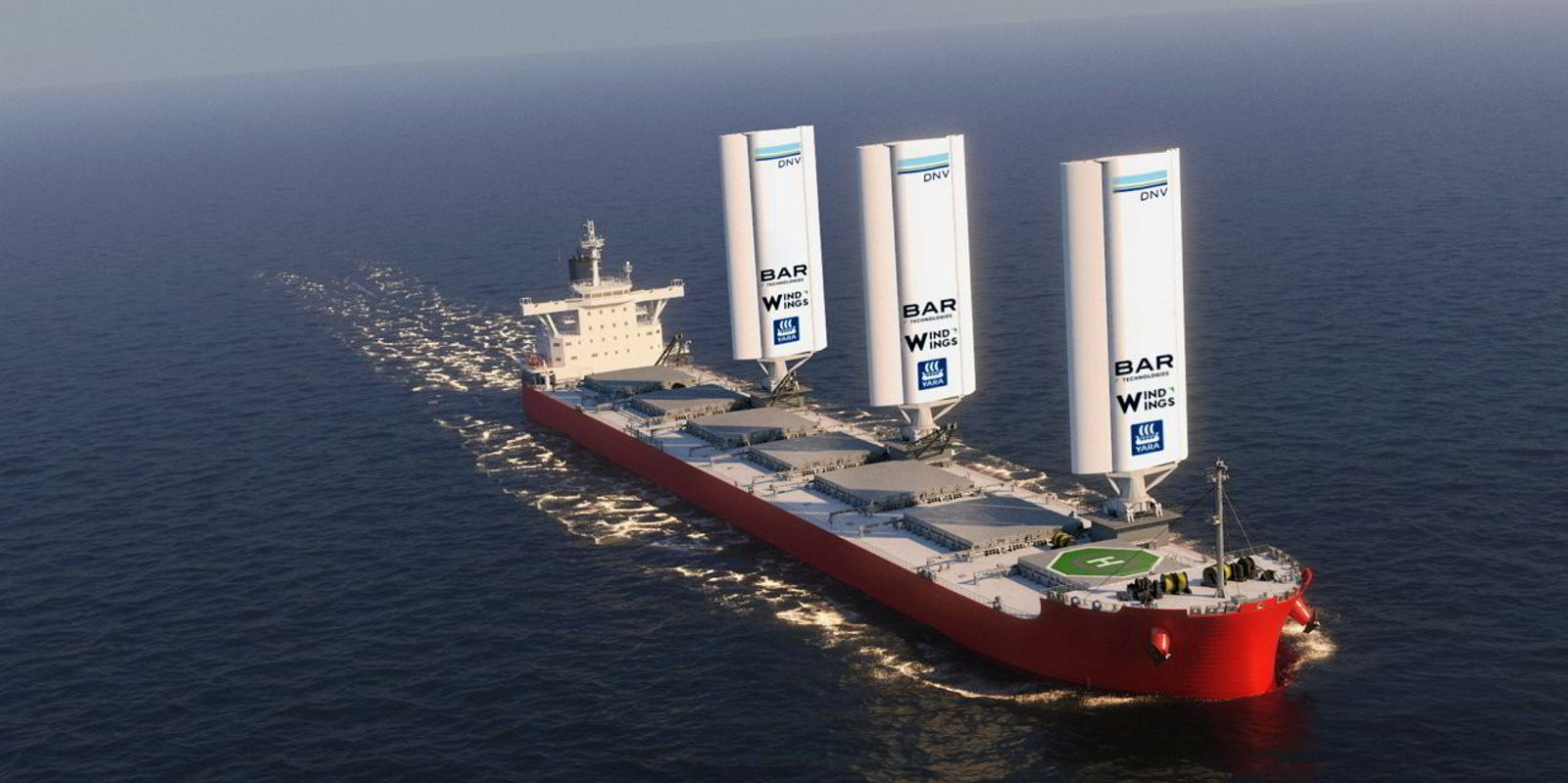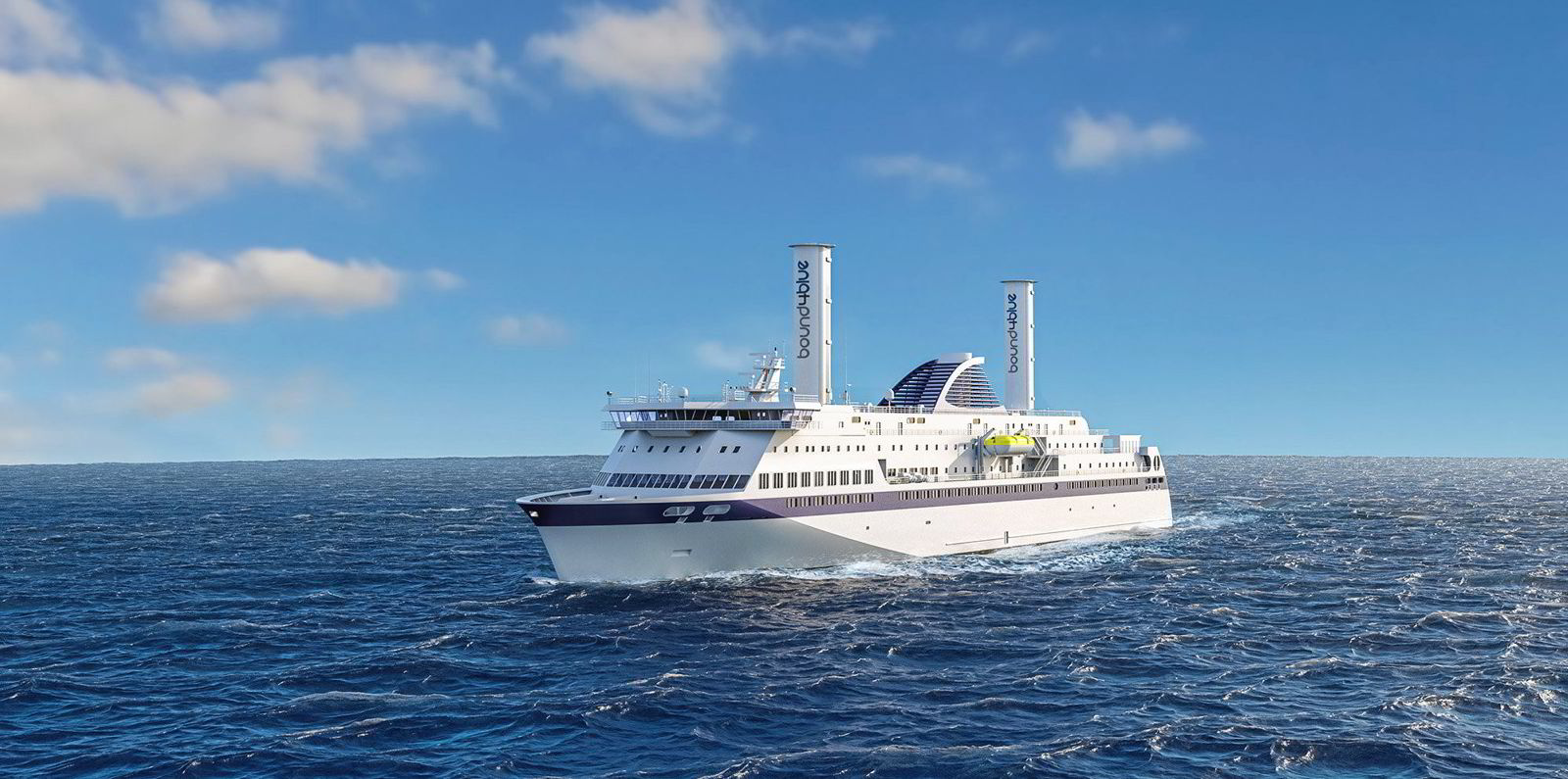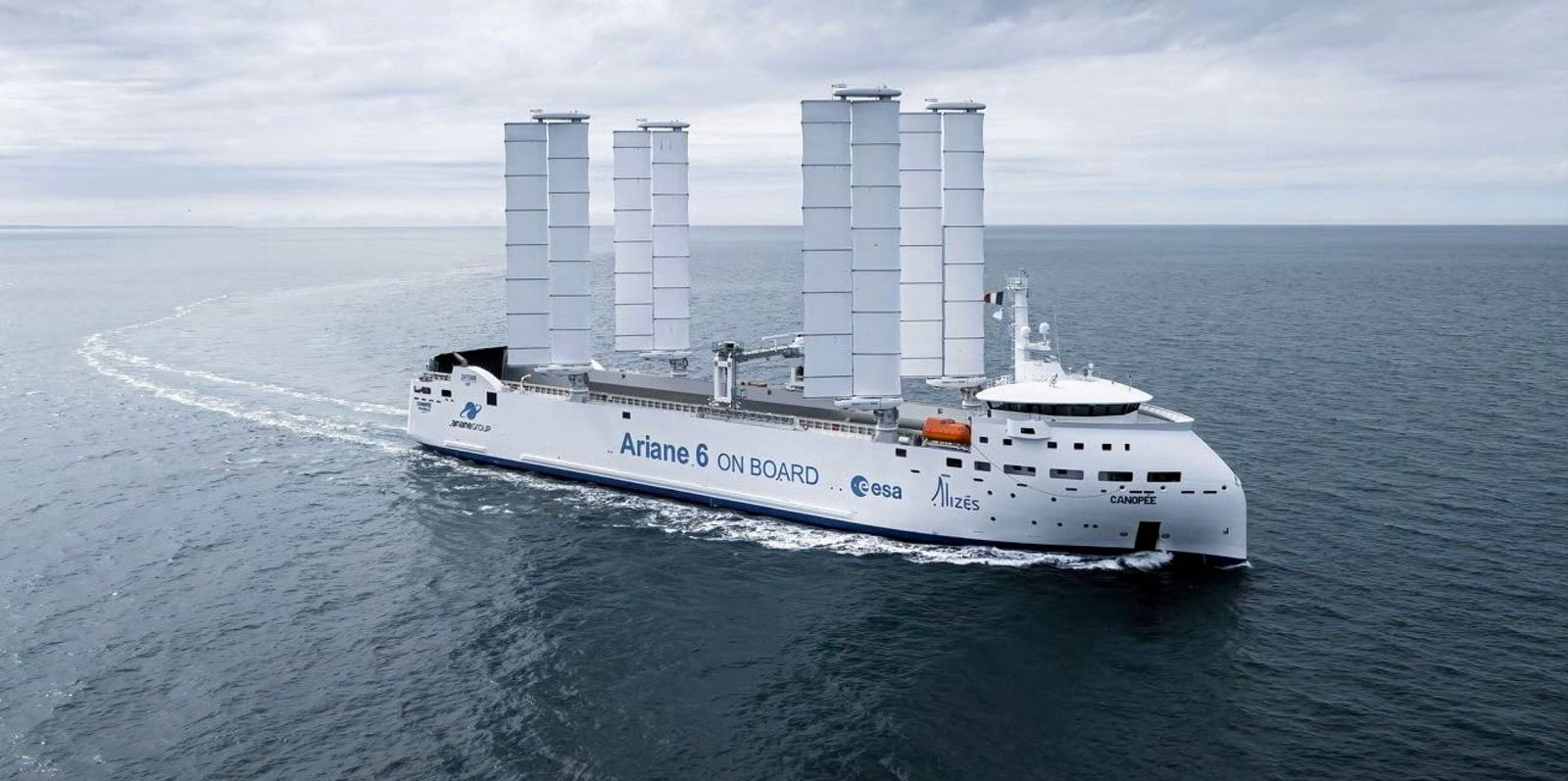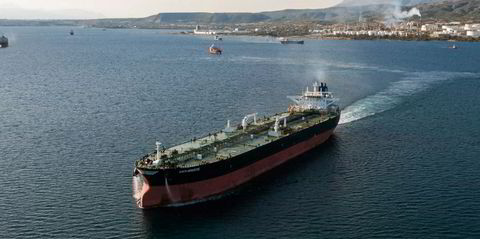Wind power is still a tiny fraction of the overall global commercial fleet, but it is growing according to statistics from the International Windship Association (IWSA).
Secretary general Gavin Allwright said the first modern vessel that could harness wind for propulsion was built in 2010 and that 23 such vessels were built over the next 12 years.
“Last year, we had eight installations. This year, we have 24,” he said during an IWSA event on Thursday held as part of London International Shipping Week. “If you want to take that, that’s a 200% increase.”
Of those installations, Allwright said rotor systems are the most popular, but that those were the first systems available for installation, giving them a first-mover advantage.
But wind sails are increasingly popular, he said, alongside kite sails and suction wind systems, which have a device inside to pull air in.
Many of the installations are on bulkers, general cargo ships and ro-ros, with the last ship type bolstered by a number of European owners who will shortly have to cope with increased emissions regulations.
Allwright also noted Evangelos Marinakis-backed Capital Ship Management had ordered six wind-ready tankers, meaning the ships will have all the foundation work necessary upon delivery without the wind systems.
“We're not just talking small vessels. We have two VLCCs in operation, one VLOC. There's an LR tanker,” he said.
The IWSA head also presented preliminary results from a survey launched earlier this year in an effort to hear perspectives on wind power from non-members.
The survey suggested both policymakers and shipowners see wind as part of the energy transition, but that owners are not buying in for regulatory purposes.
“We don’t have an energy-neutral policy and regulatory framework,” said Allwright, who has argued wind needs to be treated more like a fuel itself and less like a fuel-saving technology by the IMO and other regulators.
He suggested shifting the view on alternative fuel from high-sulphur fuel oil as the baseline and everything else being better, to wind being the baseline and all other options being varying degrees of worse.
“It’s very focused on fuels,” Allwright said of policies toward wind. “It’s not focused enough on wind propulsion.”






